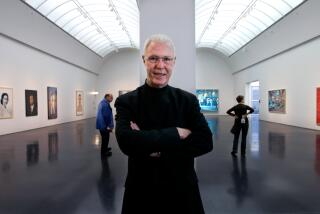The Quiet Mover and Shaker : The late Paul Ziffren was a hard-working patriot for Los Angeles
- Share via
Any short list of Angelenos with genuine clout usually included attorney Paul Ziffren, who died last week at 77.
But it’s fitting that the soft-spoken civic leader wielded his influence so quietly that most residents probably don’t know who he was. Yet many people were affected at least indirectly by the public activities he worked at so effectively, usually behind the scenes.
To cite the most obvious example, nobody who was here in 1984 can forget the initial euphoria of getting the Olympics. But only the most optimistic could have predicted that the games would prove such a winner. And fewer still had the chutzpah to say so. Ziffren was one of them, and he was in a position to know. For although the hands-on operator who put the games together was Peter V. Ueberroth, it was Ziffren, as chairman of the Los Angeles Olympic Organizing Committee, who coalesced corporate support behind the games and gave Ueberroth the necessary freedom to make things work.
Ziffren’s contributions began long before 1984. The native Iowan moved here in the early 1940s and was soon a leader in a then virtually moribund Democratic Party, becoming the state’s Democratic National Committee representative in 1953. In his eight years on the committee, Ziffren helped bring to Los Angeles the 1960 Democratic convention, which nominated John F. Kennedy for President, and helped elect a governor, Edmund G. Brown Sr.
Ziffren, as one of the leaders of the Jewish community, was enlisted by the city’s Establishment to help build the Music Center in the early 1960s. The downtown project helped bridge a subtle, but very real, gap that had existed between the elite and the “new money” of the entertainment industry. It was a profound change for the better in Los Angeles’ maturation.
Think of the men and women who turned Los Angeles from a big but provincial town to a world-class metropolis. Ziffren was one of those key city makers and city shapers.
And now his passing reminds us anew of the value of men and women whose deeds are remembered long after they are gone. It reminds us of the durable value of public service, of commitment to the community, of caring enough to go out of one’s way. May that spirit never leave Los Angeles. It is not only valuable but necessary.
More to Read
Go beyond the scoreboard
Get the latest on L.A.'s teams in the daily Sports Report newsletter.
You may occasionally receive promotional content from the Los Angeles Times.










